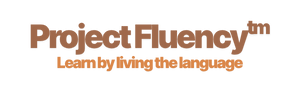Present Tense - What's Happening Now
The foundation of every conversation at the bar
Every night at the bar, people tell me what they do, what they want, what they think. The present tense is your foundation - master this and the other tenses become variations on the theme. Listen to how it sounds in real conversation.
Essential Present Forms (18)
zhuh feh
Je fais un cocktail
zhuh veh
Je vais au travail
zhuh vuh
Je veux comprendre
zhuh puh
Je peux vous aider
zhuh dwah
Je dois travailler
zhuh seh
Je sais la vérité
zhuh prahn
Je prends un verre
Vous êtes
You are (formal)
↻
Ils/Elles sont
They are
↻
eel/el son
Ils sont ensemble
zhuh parl
Je parle français
zhay-koot
J'écoute les histoires
Je comprends
I understand
↻
zhuh kom-prahn
Je comprends tout
Antoine's Present Pattern
Listen for the endings: -e, -es, -e, -ons, -ez, -ent for regular -ER verbs. Most verbs you'll use follow this pattern. The irregular ones like être, avoir, aller - you hear them so often at the bar, they become automatic. Two essential patterns: "Je suis en train de" (I'm in the middle of) and "Je viens de" (I just did).
Past Tenses - Stories Already Told
Every drink comes with a story from before
After midnight, everyone has a story. "J'ai rencontré..." (I met), "J'étais..." (I was), "Je venais de..." (I had just). The past isn't one tense - it's layers. Let me show you which layer to use when.
Past Forms & Uses (18)
zhay feh
Completed action
J'ai été
I was/have been
↻
zhay ay-tay
Specific moment
zhay par-lay
J'ai parlé avec elle
zhuh swee ah-lay
Movement verb
zhuh swee vuh-nü
Je suis venu ici
J'étais
I was (ongoing)
↻
zhay-teh
Background/description
J'avais
I had (ongoing)
↻
zhah-veh
J'avais vingt ans
zhuh fuh-zeh
Habitual past
Je parlais
I was speaking
↻
zhuh par-leh
Ongoing conversation
Il y avait
There was/were
↻
eel ee ah-veh
Setting the scene
say-teh
C'était magnifique
J'avais fait
I had done
↻
zhah-veh feh
Before something else
J'étais parti(e)
I had left
↻
zhay-teh par-tee
Earlier action
Je venais de
I had just
↻
zhuh vuh-neh duh
Je venais d'arriver
Quand j'étais jeune
When I was young
↻
kon zhay-teh zhun
Background story
The Bartender's Past Tense Guide
Passé composé = the punchline, what happened. Imparfait = the setup, how things were. "Il faisait beau" (it was beautiful) sets the scene, "j'ai rencontré Marie" (I met Marie) is the event. Every good story needs both.
Cue words: Hier, tout à coup, soudain → use passé composé. D'habitude, souvent, autrefois, pendant que → use imparfait.
Antoine's Memory Trick:
If you can put "suddenly" before it, use passé composé. If you can add "used to" or "was/were -ing," use imparfait.
Future Forms - Dreams & Plans
What tomorrow brings, what tonight promises
At the bar, everyone talks about tomorrow. "Je vais partir" (I'm going to leave), "Je partirai" (I will leave), "J'aurai fini" (I will have finished). The future has layers too - immediate plans versus distant dreams.
Future Expressions (15)
Je vais faire
I'm going to do
↻
zhuh veh fehr
Near future
Je vais partir
I'm going to leave
↻
zhuh veh par-teer
Immediate plan
zhuh suh-reh
Simple future
zhoh-reh
Future possession
Je ferai
I will do/make
↻
zhuh fuh-reh
Future action
Je viendrai
I will come
↻
zhuh vyahn-dreh
Future arrival
Je pourrai
I will be able
↻
zhuh poor-eh
Future ability
Je devrai
I will have to
↻
zhuh duh-vreh
Future obligation
Il y aura
There will be
↻
eel ee oh-rah
Future existence
La semaine prochaine
Next week
↻
lah suh-men pro-shen
Future time
J'aurai fini
I will have finished
↻
zhoh-reh fee-nee
Future perfect
Near vs. Far Future:
"Je vais" for tonight's plans, this week's intentions. Future simple for next month, next year, someday. At the bar, most conversations use "je vais" - it's immediate, it's real.
Conditional - What Could Be
The mood of possibilities and polite requests
The conditional is the language of dreams and regrets. "Je voudrais" (I would like), "Si j'étais riche" (If I were rich). It's how we're polite, how we imagine, how we wish things were different.
Conditional Forms (15)
Je voudrais
I would like
↻
zhuh voo-dreh
Polite request
zhuh duh-vreh
Advice/obligation
J'aimerais
I would love
↻
zhuh suh-reh
Hypothetical
zhoh-reh
Conditional possession
see zhay-teh
Hypothetical condition
see zhah-veh
Si j'avais su...
Ce serait bien
It would be nice
↻
suh suh-reh bee-an
Wishful thinking
too duh-vreh
Giving advice
Ce serait mieux
It would be better
↻
suh suh-reh mee-uh
Preference
J'aurais dû
I should have
↻
J'aurais pu
I could have
↻
zhoh-reh pü
Missed opportunity
À ta place
In your place
↻
ah tah plahs
+ conditional
The If-Then Formula
Si + imparfait, conditional: "Si j'étais riche, j'achèterais" (If I were rich, I would buy). Si + plus-que-parfait, conditional passé: "Si j'avais su, j'aurais agi" (If I had known, I would have acted). The deeper the regret, the more past you need.
Subjunctive - Emotions & Doubts
The mood of feelings, wishes, and uncertainty
The subjunctive is the mood of the heart, not the head. "Il faut que je parte" (I have to leave), "Je doute qu'il vienne" (I doubt he'll come). It appears after emotions, doubts, necessities. Master this, and you speak like a poet.
Subjunctive Triggers & Forms (18)
Il faut que
It's necessary that
↻
eel foh kuh
+ subjunctive
Je veux que
I want that
↻
zhuh vuh kuh
Desire trigger
J'ai peur que
I'm afraid that
↻
zhay puhr kuh
Fear trigger
Je doute que
I doubt that
↻
zhuh doot kuh
Doubt trigger
kuh zhuh swah
Être subjunctive
kuh zhay
Avoir subjunctive
kuh zhuh fahss
Faire subjunctive
Qu'il vienne
That he come
↻
keel vee-en
Venir subjunctive
Qu'elle puisse
That she can
↻
kel pwees
Pouvoir subjunctive
Je suis content que
I'm happy that
↻
zhuh swee kon-ton kuh
Emotion trigger
C'est dommage que
It's a pity that
↻
seh doh-mahzh kuh
Regret trigger
Il est possible que
It's possible that
↻
eel eh poh-seebl kuh
Possibility trigger
Je ne pense pas que
I don't think that
↻
zhuh nuh pons pah kuh
Negation trigger
Pourvu que
Provided that
↻
poor-vü kuh
Hope/condition
The Emotion Rule
Facts = indicative. Feelings = subjunctive. "Je sais qu'il vient" (I know he's coming - fact). "Je veux qu'il vienne" (I want him to come - feeling). The subjunctive lives in the gap between reality and desire.
Antoine's Subjunctive Secret:
Start with "Il faut que" - it's the most common trigger. Master "Il faut que je parte," "Il faut que tu comprennes," and you've got 50% of daily subjunctive covered.
Ready to Master Every Tense?
"Now you see - tenses aren't grammar rules, they're how we tell our stories. Past for memories, future for dreams, conditional for wishes, subjunctive for feelings. Come to the bar after midnight. We'll practice with real stories." - Antoine

